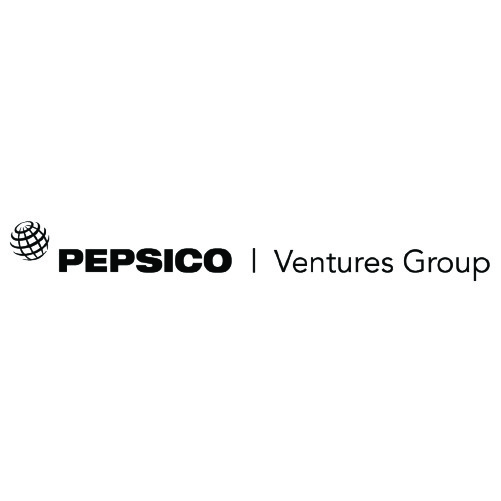Convivialité Ventures’ Stéphane Longuet Toasts Entrepreneurship and CVC Value-Add
May 13, 2024
Interviewed by Nicolas Sauvage on September 19, 2021
Despite his background and experience as an accountant and CFO, Stéphane Longuet says financial acumen is not a prerequisite for running an innovative and successful corporate venture capital arm. Stéphane, the managing partner of Convivialité Ventures, the CVC arm of Pernod Ricard, told Corporate Venturing Insider host and TDK Ventures President Nicolas Sauvage that he came to the business by accident.
Finance and Funding Knowledge Optional?
“I don’t have any background in private equity, investment banking, or venture capital,” Stéphane admitted. “I have some finance background, working for three years for Deloitte as an accountant in the audit (department). I didn’t intend to work for a CVC or to create one from scratch.”
But that’s exactly what he ended up doing. Stéphane joined Pernod Ricard, the French company behind Absolut vodka, Jameson Irish whiskey, Glenlivet scotch, and other top-shelf liquors, because it is a major player in an exciting industry offering clear pathways to advancement in the corporation through its international initiatives. Naturally, Stéphane started in the finance department and eventually rose to CFO, which allowed him to explore parts of Europe outside of France.
“I wanted to move internationally,” Stéphane explained. “I grew up in Paris. I love France. But I wanted to discover the world, and this is what Pernod Ricard was offering. So, I moved to Germany for three years. Then I moved to Milan.”
His next roles were the integration of the acquired Absolut brand and the running of the vodka business unit.
“It was very entrepreneurial because we had brands that we created from scratch. We had to think differently. It was like launching new startups. We had to learn how to be disruptive and find new ways of doing things.”
It was that experience, Stéphane says, rather than his financial training, that led the Pernod Ricard brain trust to tap him to lead Convivialité with the strategy of investing in businesses outside the alcoholic beverage market. Stéphane concedes that his comfort level with figures and business models, an understanding of basic math, and his auditing background pay off when assessing investment risk hashing out the details of a deal’s term sheets.
“But I don’t think the finance background is so important,” he said. “You can do a great job as an investor without a finance background. When I was a CFO, I was always working with the sales team and the marketing team, to figure out how we could grow the business faster. I think this is the real reason they asked me to (manage the fund). Not because I had some finance background, but because I’ve been through this journey that entrepreneurs are on.”
Entrepreneurship the Key Element
Stéphane knows the startup founders he works with face different challenges than he did when launching products from under the Pernod Ricard umbrella.
“You have one investor funding you, and it’s done in a different context because it’s corporate. So you can’t do whatever you want,” he said. “But you go through the same story. You need to pinpoint what you need to solve. What’s the product? How do I make people love or need to buy it? When you work with startups, you learn to think differently. We launched a lot of new products but only one is still alive today. So, it shows how hard it is to innovate and create a business from scratch. Of course, I have a lot of empathy for the founders because it’s even harder for them because they need to raise money from different investors all the time.”
He said startups often focus exclusively on the products they create and how they will solve customer pain points. Product is critical, of course, but by devoting all their internal resources to it, entrepreneurs have little time left to devote to developing their brand. That’s where Convivialité and the assets it can access within Pernod Ricard can add value, Stéphane said.
“When we (at Pernod Ricard) create a new (product), we think about the brand immediately because it’s going to be customer-facing. It’s really about the image — how do you package your bottle to catch the attention of the customer? How are you going to market, promote, and activate it? Many of our startups only start to think about branding and marketing when they want to enter a growth phase.”
Pernod Ricard’s presence in more than 80 countries also lowers the entrance barriers for its portfolio companies. Stéphane’s fund enables expansion by facilitating conversations and introductions to suppliers, customers, and partners in new jurisdictions.
Strategy and Exploration
Just as startups rely on Convivialité to provide skills and resources that supplement their strengths, the CVC fund seeks out nascent companies employing innovative business models in adjacent industries that could help Pernod Ricard horizontally integrate.
“We position ourselves as a strategic CVC,” Stéphane said. “We’re here not only to get financial returns. So, we always discuss during the diligence phase, beyond being interested in the business and the space, what we can do together. Pernod Ricard can build amazing programs with bars, drinks, and food, co-developing additional services. For us, it can be a new route to market to consumers, a new opportunity to develop our product in the moment of consumption.”
With both strategic and financial rewards in mind, Convivialité must communicate the tangible and intangible benefits of investing in a startup. Stéphane’s team’s mission is to identify emerging industry trends before others in the organization and explain different advantages to different stakeholders within the mothership. Top management wants to know what can be learned and applied to core and projected businesses and products within Pernod Ricard.
Business units and financial managers, on the other hand, want to see quantifiable reasons to invest. They ask, “What does it bring concretely to the business?” Stéphane explained. “We invest mostly in B2C companies. For us, they are really interesting because they give us access directly to the moments when people socialize. In our current business, we sell our product to wholesalers, who sell to a retailer, who sell to a consumer. So, we don’t know who’s buying our product. Working with the startup creates a new, direct channel for distribution, going from push to pull. (We can) experiment and test and learn how we can help them while helping our business grow, too.”
He appreciates the co-creation process, melding expertise to enable mothership diversification to create new customer experiences while sourcing consumer behavior data.
KPIs of Portfolio Construction
Convivialité’s dual interests drive the way it builds a diverse portfolio and how it measures success.
Perhaps surprisingly, Stéphane says the most important KPI for the fund is financial rather than strategic. That’s because the strategic goals are more fragmented and diverse. With a long list of strategic initiatives, it’s difficult to pinpoint one that is make-or-break.
“The most important KPI is, is the portfolio doing well? Are we going to bring a solid return to our mothership? If we don’t make good investments, we will have an issue. You can explain all your long list of strategic KPIs. People will say, ‘That’s great, but it’s not good enough for me.’ But if you have first the good return on investment or multiple, it’s your insurance. To last as a CVC and make sure that people recognize the value, it’s about making money. So, we don’t compromise on this. Even if we are super excited strategically, if we don’t believe we can get a good outcome financially from our investment, we don’t invest.”
Convivialité maintains these guidelines while constructing a portfolio that addresses the many aspects of Pernod Ricard’s business by mapping relevant spaces.
“With many internal colleagues comprising a cultural foresight team. And, we…do deep dives and drill down into some spaces and analyze all the companies and then reach out to them,” Stéphane said. “It is constant work to identify spaces that are the most relevant. The symmetry of CVC is important because crisis and change (are constant), which means investing more and more geographically and with a broader thesis.”

 CVCs provide a vital service when they can leverage their corporate parent to help startups develop their brands. Startups must focus almost exclusively on developing products and solving customer problems.
CVCs provide a vital service when they can leverage their corporate parent to help startups develop their brands. Startups must focus almost exclusively on developing products and solving customer problems. 


















